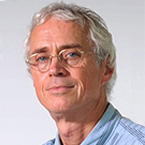
Dr. Hanahan is known as one of the pioneers who helped propel the functional genetic era of cancer research. In the 1980s, working at Cold Spring Harbor Laboratory, he developed one of the first transgenic mouse models of cancer, described in a single-author Nature paper, illustrating the causality and insufficiency of oncogenes in multistep tumorigenesis. He was one of the first to demonstrate that self-tolerance and autoimmunity could be modeled by transgenic neoantigens. His subsequent research using such mouse models led to the discovery of insulin gene expression in the thymus and evidence for its role in induction of self-tolerance. Hanahan ‘s mouse models were used in collaborations with the late Judah Folkman; they co-discovered a discrete “angiogenic switch” during multistage tumorigenesis. Earlier, as a graduate student in the 1970s, he developed new, efficient procedures for plasmid transformation and DNA cloning that markedly facilitated molecular genetic research.
His multidisciplinary approach has contributed to understanding of the tumor microenvironment. He was among the first to show that the tumor microenvironment was a barrier to anti-tumor cytotoxic T-cell attack. He helped establish the concept that inflammation could be tumor-promoting, exploring functions of tumor-infiltrating immune cells, cancer-associated fibroblasts and vascular cells, and extracellular proteases, which through their interactions with cancer cells influence tumor development and progression.
Dr. Hanahan’s current research includes studies on genetic signatures and physical cues in the microenvironment that modulate tumor invasion and metastasis, with the hope of advancing knowledge of cancer mechanisms and therapeutic applications. Dr. Hanahan’s intellectual bandwidth has enabled him to integrate ideas from many areas of cancer research. This was evident when he co-authored with Robert Weinberg a highly cited perspective, “The hallmarks of cancer,” presenting an organizing principle that has conceptually integrated the vast complexity of cancer.
Career Highlights
2014 AACR Lifetime Achievement Award in Cancer Research
2013 Vice-Director, Swiss Cancer Center Lausanne
2012 Award for Cancer Research, Fondazione San Salvatore, Lugano
2010 Elected Member, European Molecular Biology Association
2009 Elected Member, National Academy of Sciences, Washington, D.C.
2008 Elected Member, Institute of Medicine
2007 Elected Fellow, American Academy of Arts and Sciences
2001-2009 American Cancer Society Research Professor
1993 Grand Prize for Biology, National Cancer Association of France
1992-2009 Founding Chair, UCSF Fellows Program
1984-1988 Group Leader, Cold Spring Harbor Laboratory
1983 PhD, Harvard University
[Institutional affiliations listed for Fellows reflect those held at the time of their induction into the AACR Academy.]